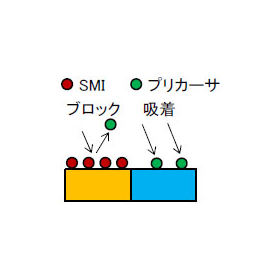What can be understood from first-principles calculations.
We will introduce the target of analysis, the physical property information obtained, and examples of analysis.
Analysis targets (Information such as composition and crystal structure is required for calculations) ? The main analysis targets are systems with periodicity, such as crystals. ? Calculations for systems with amorphous structures, surfaces, and interfaces are also possible. Obtained physical property information ? Crystal structure parameters (lattice constants, atomic arrangements, etc.) ? Electronic structure and spin states (charge distribution, band structure, Fermi surface, magnetic moments, etc.) ? Chemical bonding states such as covalent bonds and ionic bonds ? Stable structures and defect formation energies when lattice defects such as atomic substitutions and vacancies are present ? Formation energies and atomic arrangements of surfaces and interfaces ? Information related to chemical reactions, such as activation energies and structures of intermediates ? Electronic response characteristics such as dielectric functions, electrical resistivity, and Seebeck coefficients ? Thermodynamic quantities of solids, such as specific heat ? Various spectroscopic spectra (XPS, XAFS, etc.)
basic information
For more details, please contact us.
Price range
Delivery Time
Applications/Examples of results
- Evaluation of the presence sites and electronic states of dopants in wide bandgap semiconductors (such as GaN, Ga2O3, SiC) - Assessment of impurity diffusion pathways and migration barriers in Si-based materials - Elucidation of the atomic layer deposition (ALD) film formation mechanisms on various substrates - Evaluation of the TMR ratio in systems exhibiting tunnel magnetoresistance (TMR) effects (such as Fe/MgO/Fe) - Calculation of the Seebeck coefficient of thermoelectric materials
catalog(1)
Download All CatalogsRecommended products
Distributors
MST is a foundation that provides contract analysis services. We possess various analytical instruments such as TEM, SIMS, and XRD to meet your analysis needs. Our knowledgeable sales representatives will propose appropriate analysis plans. We are also available for consultations at your company, of course. We have obtained ISO 9001 and ISO 27001 certifications. Please feel free to consult us for product development, identifying causes of defects, and patent investigations! MST will guide you to solutions for your "troubles"!


















































